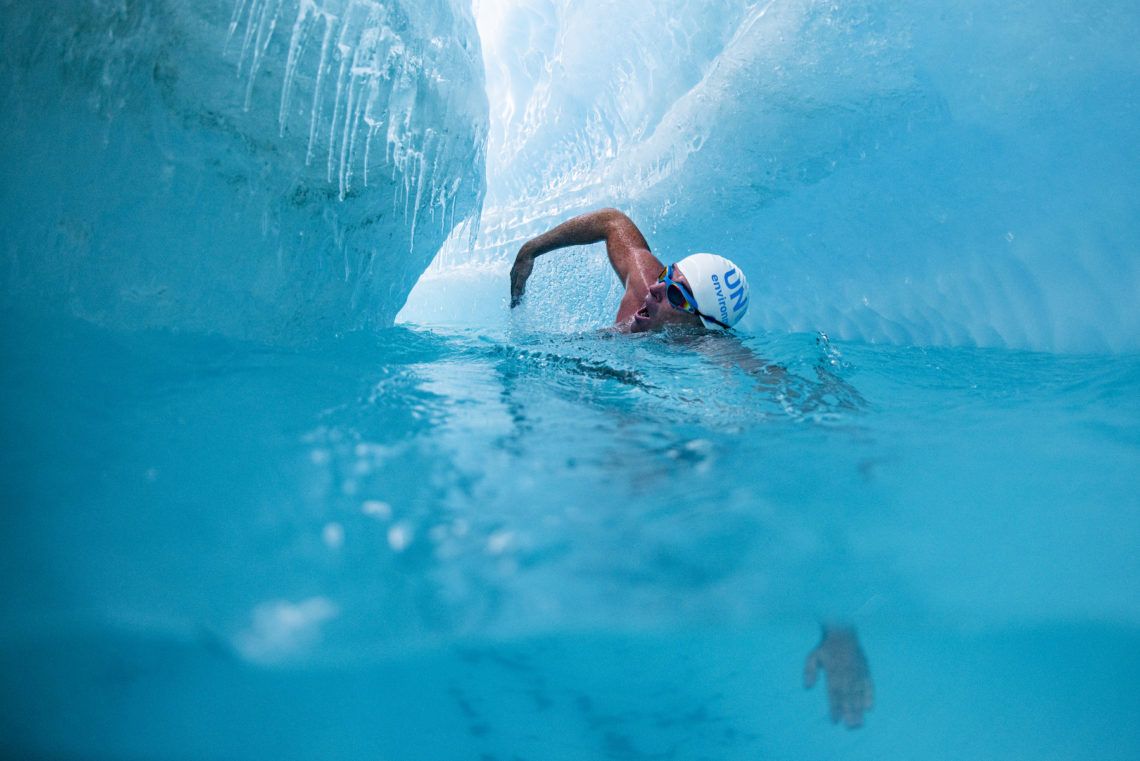On the Edge – Lewis Pugh
Michael Booth
The goal of On The Edge: Lewis Pugh was to show the lengths to which this incredible man goes to bring the world’s attention to his biggest passion, our planet’s oceans. Lewis is the real deal, no show-boating, no stunts, he is ‘just’ a normal human being that pushes his body right to the edge by using the power of his mind.
Filming in remote East Antarctica was equal parts thrilling and nerve-wrecking. The team had a very short window of time to produce this film in one of the most extreme environments and had to put both Lewis’ health/safety first and foremost.
In the end, it all came together quite nicely and the hope is that the audience is awestruck by Lewis’ achievement and Antarctica’s incomparable beauty.
The incredible team at the Lewis Pugh Foundation believes that the best way to ensure environmental justice for our oceans is to protect them from human abuse and exploitation. The best way to do that is by creating Marine Protected Areas through international consensus. Their dream is to protect 30% of the world’s oceans by 2030.
This requires a particular brand of environmental diplomacy, for which Lewis Pugh is renowned. Pugh uses the unifying power of sport to bridge divides and create a climate for negotiation and understanding.
His access to global leaders and policy makers, ensures that he can influence decisions that make a difference. To date their campaigns have been instrumental in the protection of 2.2 million km² of ocean. That’s an area the size of Western Europe.
Learn more about the Lewis Pugh Foundation and ways that you can engage to bring about real change.

The launch of this film is on World Oceans Day and as such it is especially important to point out the chilling statistics: an estimated 90% of global fish stocks have been over-exploited, and some 90% of large fish are already gone from our ocean waters. But when you restrict commercial fishing activities in protected areas, marine species are able to recover.
Marine Protected Areas (MPAs) bring a wide range of benefits for people, and the planet, locally and globally. These include:
Protecting habitats
MPAs protect marine wildlife and important habitats, allowing them to be as healthy and natural as possible, with their own unique intrinsic value.
Building resistance and resilience
Healthy systems are better able to cope with disease outbreaks, global warming, pollution and increasing extreme weather events that we can’t always predict or prevent.
Natural wilderness
MPAs allow us to view, enjoy and research wildlife in its most natural state. This helps us to understand how natural systems work, and to protect species that may have important future uses, such as potential medical cures.
Financial benefits
The increase in wildlife seen in some MPAs can boost local economies through sustainable tourism, fisheries.
Food security
Fish populations increase within MPAs and beyond, supporting local fisheries, which are an important source of food for millions of people.
Re-seeding the oceans
As fish and their larvae thrive in MPAs, they spill-out beyond the MPA boundaries and support marine ecosystems in the wider environment.
Saving our selves
MPAs not only support our oceans and coasts, but also provide a range of often over-looked services such as storing carbon – our oceans produce half the oxygen we breathe, and also absorb much of the CO² we produce.

Find more content on climate change here:
Like what you saw? Check out Roam presents Electric Greg.
